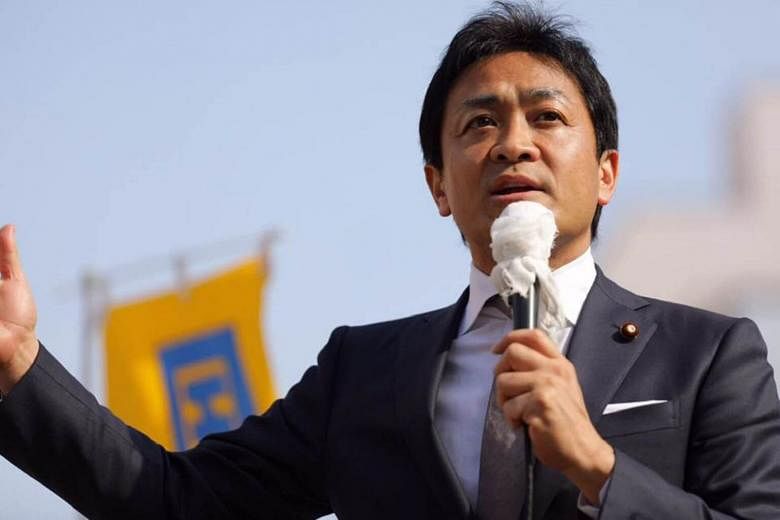TOKYO (REUTERS) - Prospects are fading for a snap election for Parliament's Lower House in tandem with a summer Upper House poll, the leader of Japan's second-biggest opposition party said on Thursday (June 20).
But Mr Yuichiro Tamaki, head of the Democratic Party for the People (DPFP) told Reuters that he would prefer to see a Lower House poll soon to boost momentum for unifying the opposition into a viable rival to Prime Minister Shinzo Abe's conservative ruling party.
Mr Abe said on Wednesday that he was not considering a snap Lower House poll, but speculation remains that he might call one.
Mr Tamaki put the likelihood of such a poll at between 10 per cent and 20 per cent, in part because Mr Abe's government has come under criticism after an advisory panel suggested that many retirees could not live on pension income alone.
"Because of the pension issue, the wind isn't blowing in such a good direction (for Abe)," Mr Tamaki said.
Mr Abe has led his Liberal Democratic Party (LDP) to five general election wins since returning as party leader in 2012, aided by a fragmented opposition and low turnout.
"We are divided, so voters feel their votes would be marginalised and would not lead to any big change" if they opted for an opposition party, Mr Tamaki said.
He said he feared a future in which Japan's political sphere was divided into a permanent ruling bloc versus a permanent opposition camp.
"I think the next Upper and Lower House elections may be the last chance for a political system to take root in which a change in government is possible," he said.
"If an election nears... for the first time, we could begin to build a stronger cooperative relationship," he said.
The DPFP, formed after its centre-left predecessor split into two main groups in 2017, has struggled to gain traction, winning backing from just 1.2 per cent of voters in a survey this month by public broadcaster NHK.
That compared with the LDP's 36.7 per cent and 5.1 per cent for the biggest opposition group, the Constitutional Democratic Party of Japan (CDPJ).
The CDPJ, however, has been wary of any opposition merger that would skate over policy differences.
Many voters have not forgotten the 2009-2012 rule of the predecessor of the DPFP and CDPJ, which was plagued by flip-flops and infighting.
"We want to bring the opposition together as much as possible, but there is another party," Mr Tamaki said. "It's the same as marriage."

